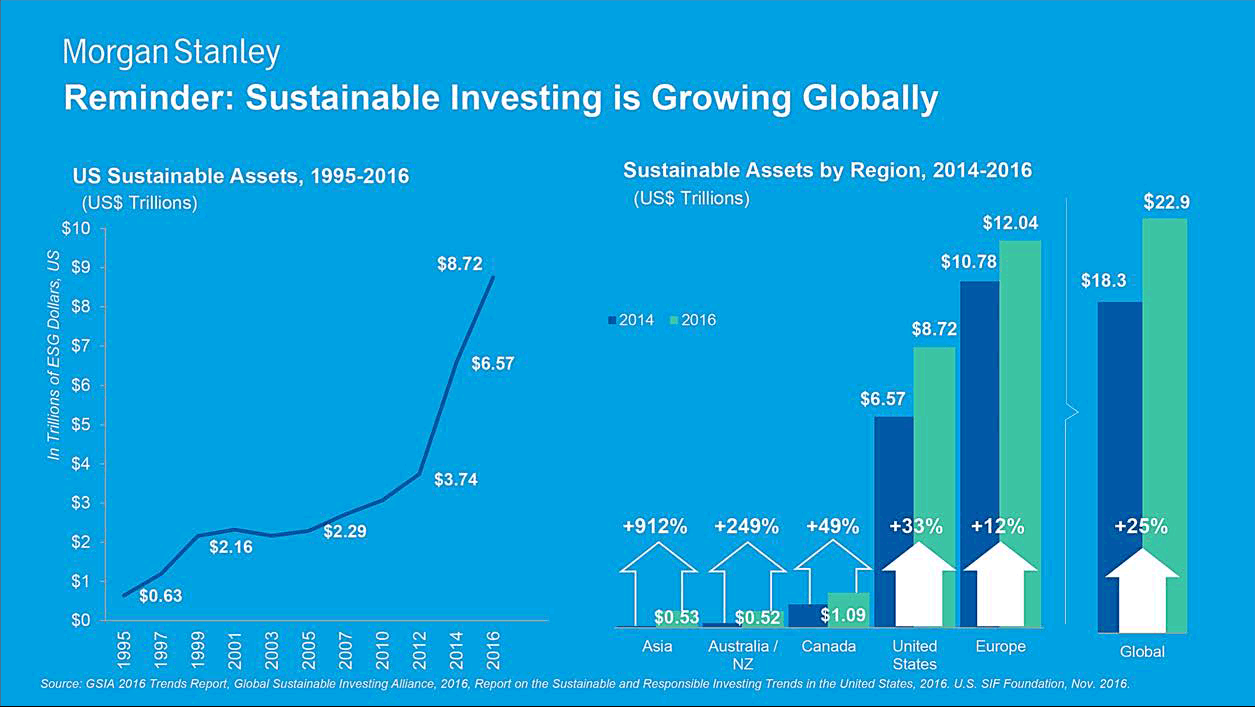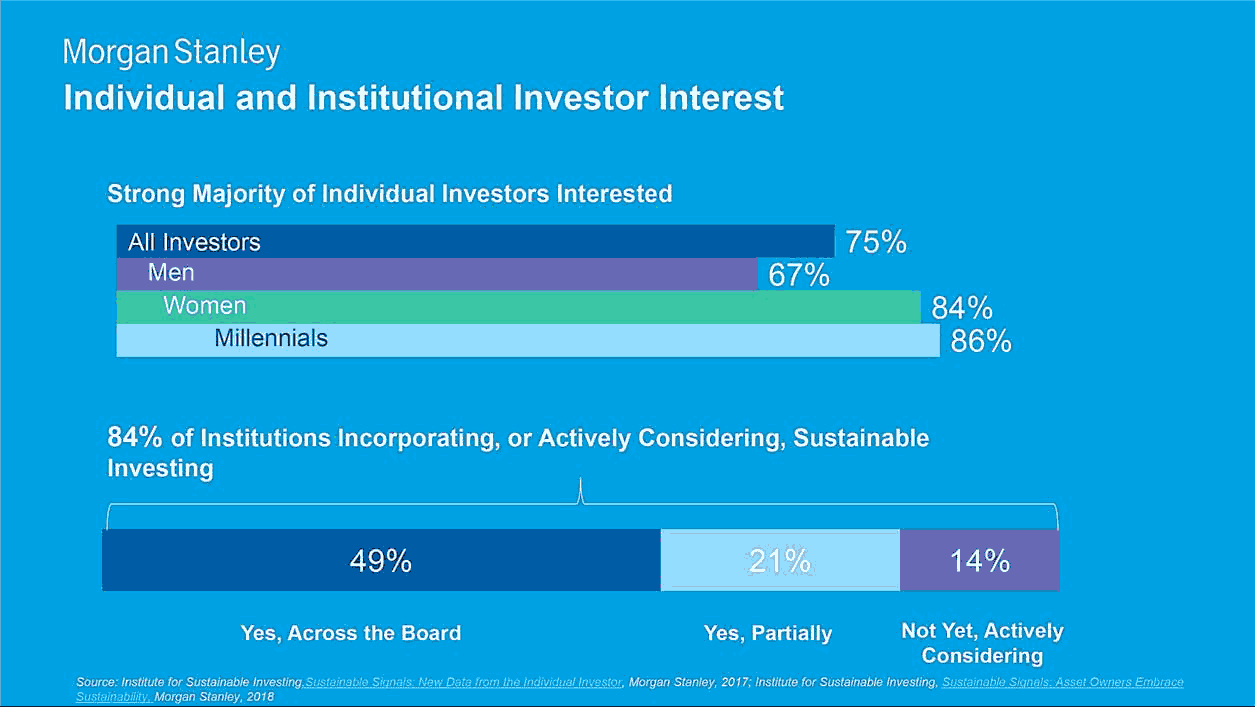Sustainable, Responsible Impact Investing for the Environmental, Social & Governance-Minded
According to US/SIF, the broad outlines of the Environment, Social and Governance (ESG) and Socially Responsible Investing (SRI) issues incorporated by money managers include:
- Environmental Investment Factors – Climate change, clean technology…
- Social Criteria – Conflict risk, equal opportunity, labor and human rights…
- Governance Issues – Shareholder actions, corporate boards and proxy actions…
- Criteria
- Exclusion – Tobacco, alcohol, firearms, gambling…
- Inclusion – Best practices by industry…
Trends in data support that more and more individuals are making conscious investment decisions based on how their investment will impact the environment and their community. Ultimately, investors desire the same outcomes that all investors want: potential return on investment – but unlike other investors, ESG investors seek to remain true to their own internal coordinates and beliefs.
Why Is Impact Investing Important To Your Practice?
A Large & Growing Market

An Accelerating Capture Rate
- It is estimated that impact investing (SRI/ESG) approaches are capturing 1 out of every 6 dollars in new US AUM.
- Between 2012 and 2016, the pace of US ESG asset growth was about 19 percentage points higher than that of traditional assets.
Source: Investment News, “Why It’s Time to Believe The Hype behind ESG Investing”, 4/8/15; Morgan Stanley, “The Case for Sustainable Investing”, 7/9/18.
The Advisor/Prospect Disconnect
- 74% of Investors are Seeking More Information about SRI/ESG
-
Only 6% of Advisors are Interested in SRI/ESG Portfolios
Source: Allianz Global Investors Study, June 2017.
A Differentiation Opportunity
Only 49% of advisor/representatives have an SRI/ESG solution available for clients…
Source: Allianz Global Investors Study, June 2017.
Who Is Interested In Impact Investing?

About Those Millennials…
- Millennials stand to inherit $59 Trillion by 2060.
- They rank social impact as a “crucial criterion” in investment decision making.
- Their median age is now 30, the typical age for first-time investors.
Source: Investment News, “Why It’s Time to Believe The Hype behind ESG Investing”, 4/8/15; Morgan Stanley, “The Case for Sustainable Investing”, 7/9/18.
The Bottom Line
As the world grows in its awareness of corporate practices and their impact on society and the environment, The Institute has kept pace with its Socially Responsible Investing (SRI) portfolios for environmental, social, and governance-minded investors (ESG). Although the criteria for selecting appropriate funds can be stringent, The Institute believes that ESG investors ultimately desire the same outcomes that all investors want: potential return on investment. Beyond the necessary screening criteria, ESG investors should expect their manager to address risk first and return second, which is precisely The Institute way.
For these portfolios, The Institute employs the same thorough approach as it does to the construction of all its portfolios. With our SRI portfolios, we incorporate screens guided by Morningstar™ to the security selection process, creating efficient, values-based portfolios.
Would you like to keep reading more about impact investing? Download the full presentation presented by The Institute for Wealth Management at CAAP Boston in 2018.
THIS MATERIAL IS FOR INSTITUTIONAL/BROKER-DEALER USE ONLY.
